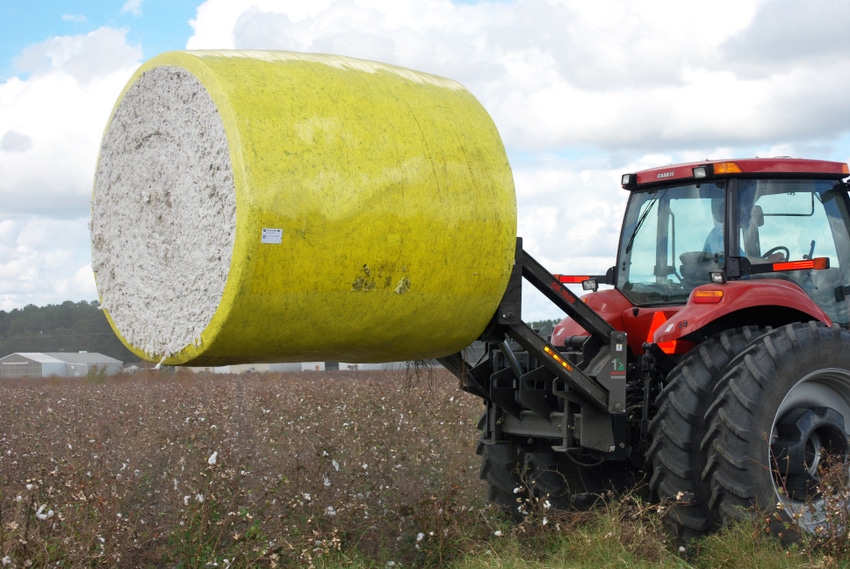July 18, 2017

U.S. cotton farmers can’t wait on the next farm bill. A bipartisan Congressional coalition urged President Trump to help stabilize the industry now by operating the Cotton Ginning Cost Share Program on an ongoing basis.
The coalition of 109 Democrats and Republicans from rural and urban districts across the country sent Trump a letter July 18 asking him to keep the cost-share program going, beginning with the 2016 crop year.
In 2016, USDA provided ginning cost-share payments for the 2015 crop, a move that appreciably helped many growers who said the payments were ‘life savers,’ coming as they continue to deal with an unfriendly global market offering prices below the cost of what it takes to produce quality cotton. Restarting the cost-share program this year is one of the National Cotton Council’s immediate primary legislative goals.
4 key points from the letter:
America’s cotton farming families are struggling to compete on a lopsided global playing field heavily weighted to our competitors in countries like China and India that benefit from sharply rising government subsidies.
In the past decade, American cotton farmers have had to endure sharply increasing foreign subsidies, tariffs, and non-tariff trade barriers along with multiple years of significant weather-related crop losses, all under a significantly weakened and uncertain U.S. safety net. In recent years, these factors have resulted in the United States experiencing a 30-year low in cotton planted area; global cotton prices approaching $2 per pound before plummeting to as low as 57 cents per pound; and record production costs far outpacing market returns for the last three years.
The U.S. cotton industry’s infrastructure is in trouble, includes gins, warehouses, marketing cooperatives, merchants, cottonseed processors, merchandisers, and textile manufacturers across the 17-state Cotton Belt from Virginia to California. For example, over the past decade, the numbers of businesses involved in the ginning and warehousing of cotton have declined by 33 and 21 percent, respectively.
The letter says it “is imperative that we protect the remaining 20,000 businesses in this industry that employ 126,000 people and generate over $21 billion in revenue or America risks losing this important sector of our economy in the same way we lost much of our textile industry, once the largest part of the U.S. manufacturing sector.”
“We can’t continue ignoring the economic turmoil of U.S. cotton farmers. While countries like China and India are pouring billions of dollars into subsidies for fiber production each year, America’s cotton producers have been struggling to scrape by without a safety net to help them soldier through these tough times – the steepest slide in net-farm income since the Great Depression. Cotton producers can’t wait until the next farm bill – they need help now. I urge the president to stand shoulder-to-shoulder with U.S. cotton farmers to provide them with the assistance they so desperately need,” said Mike Conaway (R-TX), House Agriculture Committee chairman, in a prepared statement.
The letter was a joint effort with House Agriculture Committee Ranking Member Collin Peterson (D-MN), General Farm Commodities and Risk Management Subcommittee Chairman Rick Crawford (R-AR), Subcommittee Ranking Member Rick Nolan (D-MN), House Appropriations Agriculture Subcommittee Chairman Robert Aderholt (R-AL), Subcommittee Ranking Member Sanford Bishop (D-GA) and committee members Rep. Jodey Arrington (R-TX) and Rep. Tom O’Halleran (D-AZ).
Senators also sent Trump a letter July 18 requesting that the USDA continue the cost-share program. “The cost share program is needed to provide policy stability in the absence of a comprehensive policy for cotton in the existing farm bill to respond to deep and sustained price and revenue declines,” the senators wrote in a bipartisan letter to Trump. Without some action by the federal government, these families will continue to see their equity erode or take on a greater debt load as they hope to keep their family farms in operation.”
The bipartisan letter was led by U.S. Sens. John Boozman, R-Ark., and Mark Warner, D-Va., and included signatures from Sens. Lamar Alexander, R-Tenn., Johnny Isakson, R-Ga., Roy Blunt, R-Mo., Richard Burr, R-N.C, Bill Cassidy, R-La., Thad Cochran, R-Miss., Bob Corker, R-Tenn., John Cornyn, R-Texas, Tom Cotton, R-Ark., Ted Cruz, R-Texas, Lindsey Graham, R-S.C., Martin Heinrich, D-N.M., James Inhofe, R-Okla., Tim Kaine, D-Va., John Kennedy, R-La., Claire McCaskill, D-Mo., Jerry Moran, R-Kansas, Bill Nelson, D-Fla., David Perdue, R-Ga., Pat Roberts, R-Kansas, Richard Shelby, R-Ala., Luther Strange, R-Ala., Thom Tillis, R-N.C., and Roger Wicker, R-Miss.
You May Also Like




